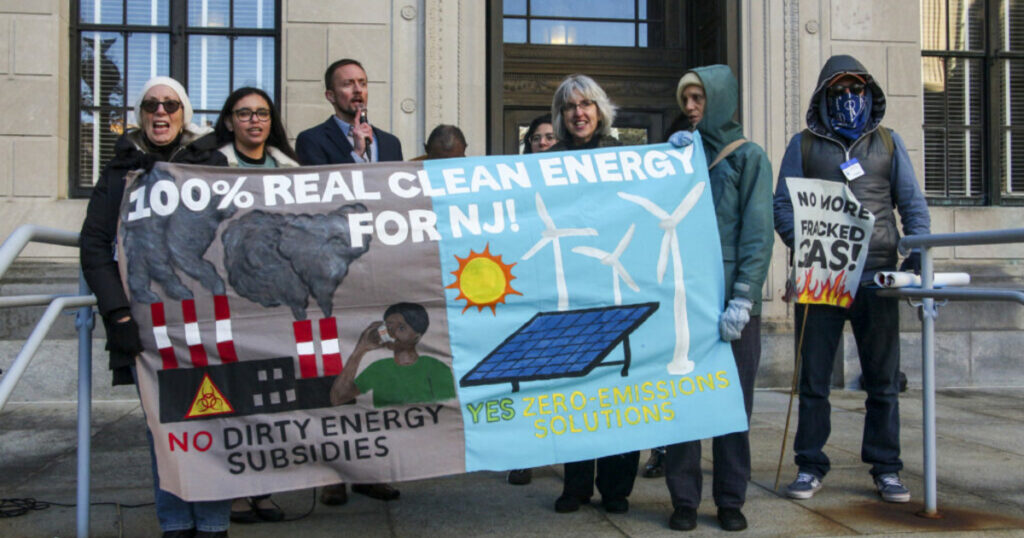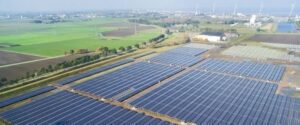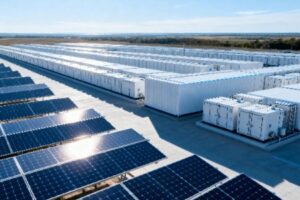Clean-energy bill prompts hours of impassioned testimony — but no decision

After a 143-day summer break, New Jersey legislators returned to Trenton Monday with a bang — a standing-room-only hearing at the Statehouse that ran almost five hours on a bill that would codify Gov. Phil Murphy’s mission to move the state to 100% clean energy by 2035.
Almost everyone agreed legislators should act to expand renewable energy use and production in New Jersey to slow accelerating climate change, but few agreed on how the state should get there. So members of the Senate’s environment committee pushed their vote on the bill to their Dec. 18 meeting so they have more time to mull Monday’s testimony and amend the bill.
Sen. Bob Smith (D-Middlesex), the committee’s chair and bill’s prime sponsor, said its passage is a top priority for him in the waning weeks of the current legislative session, given that New Jersey’s “green governor” has just two years left in his term — and the clean-energy goals he set in executive orders could go with him.
“An executive order is only rule as long as that executive is the executive. There are no guarantees that the next governor will be as green as the current. So the original purpose of the bill was to put that standard into law,” Smith said.
The measure “got a little bigger” after input from stakeholders from environmental justice groups, industry, labor unions, and others, Smith said.
Many of the dozens of people who testified or submitted written stances at Monday’s hearing support the legislation’s overarching intent, but many urged amendments for various reasons.
Maria Lopez-Nuñez of the Ironbound Community Corp. asked legislators to support an amendment that would disallow trash incinerators — or “resource recovery facilities” as they’re defined in the legislation — as clean electricity production facilities.
She told legislators they have a duty to stop subjecting communities already overburdened by pollution to more, adding that one in four children in her hometown of Newark has asthma.
“There are people being impacted by the decisions y’all are making,” she said. “As you’re building the future, don’t build it dirty. Really make it squeaky clean.”
Some of the most controversy arose from a provision in the bill that would set a new goal for New Jersey to secure 65% of its electricity supply by 2035 from in-state producers of nuclear, wind, solar, or hydroelectric electricity.
For supporters, the goal marks a major shift.
“This is a massive increase from the roughly 25% of in-state clean energy we currently have,” said Eric Miller, New Jersey energy policy director at the Natural Resources Defense Council.
But to labor leaders, the goal means New Jersey will rely on other states for the other 35% of its electricity supply.
“By allowing for purchase from out-of-state providers, the bill is not prioritizing new development and clean sources of energy here in New Jersey,” said Jennifer Mancuso of the New Jersey chapter of the Laborers’ International Union of North America. “So we’re concerned about job suppression and job growth in New Jersey.”
Jesse Jenkins of Princeton University’s Net Zero Project, who testified in support of the bill, estimated that building and operating clean-energy facilities in New Jersey would create 24,000 jobs. Smith said he wasn’t sure why the bill’s projected impact on jobs varied so much, but said he suspected unions’ worries were “based on a fear of the unknown.”
Several people raised concerns about the costs to taxpayers.
In his testimony, Miller acknowledged that renewable and fossil fuel energy generation is cheaper to build in Pennsylvania, which is the nation’s largest electricity exporter in the country and second-largest producer of natural gas.
Still, he added, “we all agree that we want to grow our own clean energy economy and provide good-paying jobs here at home. We need to find the right balance between affordability for ratepayers, and in-state job growth. NRDC strongly believes that this legislation finds that balance.”
But 37% of New Jersey households are “living in functional poverty,” said Brian Lipman, the state advocate for ratepayers. “Ratepayers already are paying a lot.”
Requiring ratepayers to bear some of the burden of the state’s shift to clean energy will force some residents to make untenable decisions between heating their home or buying groceries and could drive struggling businesses to relocate to other states or take other cost-cutting measures like laying off staff, he cautioned.
Such warnings irked Smith, who had some warnings of his own about how climate change worsens air quality and causes extreme weather that leads to destructive, deadly flooding.
“You’re absolutely right — we want our rates to be as low as they possibly can be for all of our ratepayers. But you’re absolutely wrong when you say: ‘Don’t go forward with stuff,’” Smith said. “All of the ratepayers who you’re talking about also breathe, and they want to breathe clean air. They want to be able to get insurance on their property. And they don’t want to drown in a flood.”




